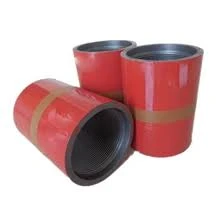- Afrikaans
- Albanian
- Amharic
- Arabic
- Armenian
- Azerbaijani
- Basque
- Belarusian
- Bengali
- Bosnian
- Bulgarian
- Catalan
- Cebuano
- Corsican
- Croatian
- Czech
- Danish
- Dutch
- English
- Esperanto
- Estonian
- Finnish
- French
- Frisian
- Galician
- Georgian
- German
- Greek
- Gujarati
- Haitian Creole
- hausa
- hawaiian
- Hebrew
- Hindi
- Miao
- Hungarian
- Icelandic
- igbo
- Indonesian
- irish
- Italian
- Japanese
- Javanese
- Kannada
- kazakh
- Khmer
- Rwandese
- Korean
- Kurdish
- Kyrgyz
- Lao
- Latin
- Latvian
- Lithuanian
- Luxembourgish
- Macedonian
- Malgashi
- Malay
- Malayalam
- Maltese
- Maori
- Marathi
- Mongolian
- Myanmar
- Nepali
- Norwegian
- Norwegian
- Occitan
- Pashto
- Persian
- Polish
- Portuguese
- Punjabi
- Romanian
- Russian
- Samoan
- Scottish Gaelic
- Serbian
- Sesotho
- Shona
- Sindhi
- Sinhala
- Slovak
- Slovenian
- Somali
- Spanish
- Sundanese
- Swahili
- Swedish
- Tagalog
- Tajik
- Tamil
- Tatar
- Telugu
- Thai
- Turkish
- Turkmen
- Ukrainian
- Urdu
- Uighur
- Uzbek
- Vietnamese
- Welsh
- Bantu
- Yiddish
- Yoruba
- Zulu
Extension Coupling for Well Casing Systems in Oil and Gas Applications
Well Casing Extension Coupling An Essential Component in Oil and Gas Drilling
In the oil and gas industry, drilling operations involve several crucial components that ensure the efficiency, safety, and success of the extraction process. Among these components, well casing plays a vital role in maintaining the integrity of the wellbore. As wells are drilled deeper and production requirements evolve, the necessity for well casing extension coupling has become increasingly significant.
Understanding Well Casing
Well casing is a series of pipes installed in a drilled well to provide structural support and isolate the produced fluids from the surrounding formations. Typically made of steel, the casing is essential for preventing the well from collapsing as well as for protecting groundwater supplies from contamination. The casing also facilitates the installation of various downhole equipment, such as pumps and valves.
The Role of Casing Extensions
As drilling technology advances and projects demand deeper wells, the length of well casing required may exceed the standard lengths manufactured by casing suppliers. In such scenarios, casing extensions are used. A casing extension, typically a length of casing specially processed for coupling, allows operators to add additional sections of casing to meet depth requirements.
The well casing extension coupling is the connection component that joins these extended sections together. It ensures the strength and pressure integrity of the joined casing, maintaining the structural integrity necessary for effective drilling and production operations.
Importance of Coupling
The coupling is designed to withstand the extreme pressures and environmental conditions encountered during drilling operations. It has to hold up against bending, torsional stresses, and other loads that can occur during the drilling process. Thus, proper selection of casing extension couplings is crucial for the overall success of the well.
well casing extension coupling

Couplings come in various types, including threaded couplings, welded couplings, and premium connections. Each type has its unique advantages depending on the specific needs of the drilling operation. For instance, threaded couplings are often easier to install, while welded couplings may provide higher strength and resistance to leakage.
Material Selection and Specifications
Choosing the right material for casing extension couplings is vital. Most couplings are made from high-strength steel that can withstand significant pressure and harsh environmental conditions. Specifications may include factors such as tensile strength, yield strength, and corrosion resistance. Operators must also consider the potential impact of downhole chemicals and temperatures on the coupling material.
Additionally, industry standards and certifications, such as those set by the American Petroleum Institute (API), guide the manufacturing process for well casing extension couplings. Compliance with these standards ensures that the couplings will perform reliably in the demanding operating conditions of oil and gas wells.
Installation and Maintenance
Proper installation of well casing extension couplings is critical. Field engineers must adhere to best practices to avoid potential failure points that could compromise well integrity. This includes accurately aligning pipes, ensuring adequate torque during installation, and employing adequate sealing mechanisms to prevent leakage.
Regular inspections and maintenance activities are also essential to assess the condition of the couplings. Monitoring for signs of wear, corrosion, or other damaging factors helps in the early identification of potential issues that could lead to failures, thereby averting costly downtime and enhancing safety measures.
Conclusion
The role of well casing extension couplings in oil and gas drilling cannot be overstated. As exploration continues to advance into more challenging environments and deeper reservoirs, the need for reliable casing and couplings becomes increasingly paramount. With the proper design, material selection, and adherence to guidelines, well casing extension couplings ensure the integrity of the well, facilitating effective resource extraction while ensuring environmental safety. Ultimately, the evolution of drilling technology and practices will continue to shape the development of well casing components, adapting to meet the industry's ever-changing demands.
-
Well Casing Extension Couplings – Applications and InstallationNewsJun.06,2025
-
Types of Crossover Subs in Drilling & CompletionNewsJun.06,2025
-
Key Features of High-Quality Tubing Pup JointsNewsJun.06,2025
-
Installation and Maintenance Tips for Steel Couplings for PipeNewsJun.06,2025
-
How to Select the Right Pup Joint for Oil & Gas OperationsNewsJun.06,2025
-
Applications of Stainless Steel Pipe CouplingsNewsJun.06,2025







